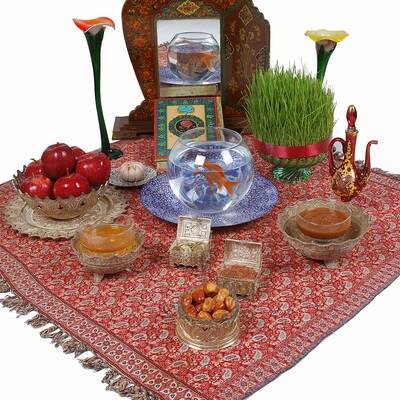_0_0_0.jpg)
The 13th day of Farvardin has been named as Sizdah-Be-Dar or Nature Day in Iranian culture that is an ancient ritual and also it is one of the most important common and shared customs among Iranian tribes. This day is an official holiday in Iran. Iranians annually celebrate this day by coming the new year and spring season; spending 12 days of Nowruz holidays with picnicking outdoors in nature; Sizdah- Be-Dar ceremony is hold with many various methods and customs in different regions of the country. The 13 days of Nowruz holidays will end after this day and everything will return to routine form.
There are various analysis on the different reasons of Sizdah-Be-Dar genesis. The number of 13 was an unlucky number in mythological culture of ancient Iranian and many other nations; therefore, they believed that an unpleasant thing occurs in this day and because of that, they spend it outdoors, even for a short time and celebrate this day to save themselves from disasters caused by 13.
Today, no one accepts 13 as an unlucky number and people mostly believe that it is just a superstition. According to another belief, the 13th day of each month in ancient Iranian thirty-day calendar was related to the Tir or Tishtar angel (Rain Star) and it is a blessed and happy day.
Different ceremonies based on each region’s culture are common in Sizdah-Be-Dar such as game, sport, local match, wearing traditional clothes, playing music, local and group dance, eating the lettuce with Sekanjebin (one of the oldest Iranian drink), cooking local foods, different types of Ash and the other customs of Iranian tribes. The other part of Sizdah-Be-Dar rituals are originated from some mythological beliefs and cultures like "eavesdrop on conversations", Fortune-telling, the humorous custom of "Sizdah-Be-Dar’s lie" or knotting the green and throwing away the green which are common customs among Iranian in this day. Today, the ancient and original form of Sizdah –Be –Dar has been changed like many other Iranian rituals.
